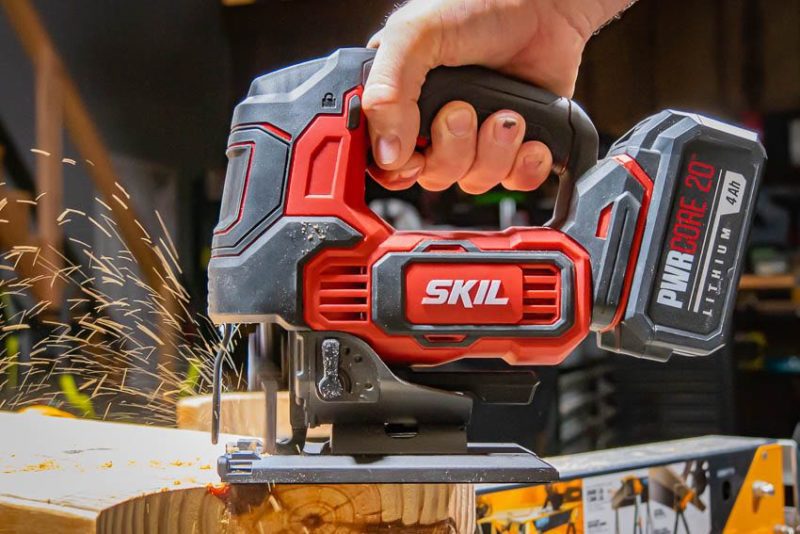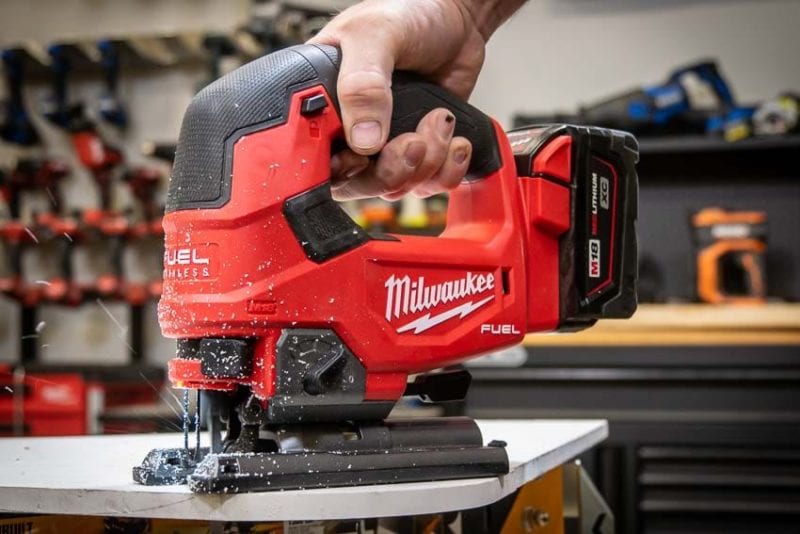Are you wondering if a jigsaw is worth it? Well, let me tell you, my friend, you’re in the right place! If you’ve ever found yourself staring at a puzzle with a mix of excitement and confusion, you’re not alone. Jigsaws can be both challenging and satisfying, making them a popular choice for puzzle enthusiasts of all ages.
But is a jigsaw puzzle really worth your time and effort? That’s the question we’re going to explore in this article. Whether you’re a seasoned puzzler or a curious novice, we’ll dive into the world of jigsaw puzzles and discover if they’re worth the investment.
So, buckle up and get ready for a puzzling adventure as we unravel the mysteries of jigsaw puzzles and determine if they’re worth the hours of concentration and satisfaction they provide. Let’s embark on this journey together and find out if a jigsaw is truly worth it!

Is a Jigsaw Worth It?
If you enjoy woodworking or DIY projects, you may have considered adding a jigsaw to your tool collection. But is a jigsaw worth it? In this article, we will explore the benefits of owning a jigsaw, its versatility, and the various projects you can tackle with this handy tool. Whether you’re a professional carpenter or a hobbyist, a jigsaw can be a valuable addition to your workshop. Let’s dive in and discover why!
Benefits of Owning a Jigsaw
When it comes to power tools, versatility is key, and a jigsaw offers just that. With its ability to make intricate and precise cuts in various materials, a jigsaw opens up a world of possibilities for woodworking and DIY enthusiasts. Here are some of the key benefits of owning a jigsaw:
Versatility
A jigsaw is a versatile tool that can handle a wide range of cuts. It can make straight cuts, curved cuts, beveled cuts, and even plunge cuts. This makes it an ideal tool for cutting intricate shapes, whether you’re working on intricate scrollwork or cutting out patterns for furniture pieces. The ability to make detailed cuts in both wood and other materials such as plastic and metal allows for endless creative possibilities.
Additionally, a jigsaw allows you to adjust the speed and the depth of your cuts, giving you full control over the cutting process. This versatility is beneficial for both experienced woodworkers and beginners, as it allows for greater precision and the ability to tackle a variety of projects.
Easy to Use
One of the advantages of a jigsaw is its ease of use. Unlike some other power tools, a jigsaw is relatively lightweight and compact, making it easy to handle and maneuver. Whether you’re working in a small workshop or on a job site, the portability of a jigsaw allows you to bring the tool wherever the project takes you.
Furthermore, a jigsaw typically comes with a variety of blades that can be easily interchanged. This means you can switch between different blade types depending on the material you’re cutting or the type of cut you need to make. The quick blade change mechanism saves you time and effort, allowing you to focus on your project without delays.
Cost-Effective
Compared to other power tools, a jigsaw is relatively affordable. You can find a quality jigsaw within a reasonable price range, and it’s a great investment for both professionals and DIY enthusiasts. Its versatility and ability to handle a wide range of projects make it a cost-effective choice. Instead of buying multiple specialized tools, a jigsaw can often do the job just as well.
Furthermore, a jigsaw doesn’t require an expensive setup or additional accessories. As long as you have the necessary safety equipment, such as goggles and ear protection, you’re good to go. This makes it a budget-friendly option for those looking to expand their tool collection without breaking the bank.
In conclusion, a jigsaw is definitely worth it for anyone interested in woodworking or DIY projects. Its versatility, ease of use, and affordability make it a valuable addition to any workshop. Whether you’re a professional carpenter or a hobbyist, a jigsaw will open up endless creative possibilities and allow you to tackle a wide range of projects with precision and ease. So go ahead, invest in a jigsaw, and watch your woodworking skills take off!
Tips for Using a Jigsaw
Choose the Right Blade
Choosing the right blade for your jigsaw is crucial for achieving clean and precise cuts. There are different blade types available, each designed for specific materials and cuts. For example, a fine-toothed blade is ideal for cutting through wood, while a bi-metal blade is better suited for cutting through metal. Make sure to select the appropriate blade for your project to achieve the desired results.
Secure the Workpiece
When using a jigsaw, it’s important to securely fasten your workpiece to prevent it from moving or vibrating during the cutting process. This will ensure more precise cuts and reduce the risk of accidents. Use clamps or a vice to hold the workpiece in place, especially when making intricate cuts or working with delicate materials.
Practice Proper Technique
Using a jigsaw requires a steady hand and proper technique. Start by positioning the blade near the edge of the workpiece and gradually ease it into the material, allowing the blade to do the cutting. Avoid applying excessive pressure, as this can cause the blade to deflect or bend. Move the jigsaw at a steady pace, following your marked lines, and let the tool do the work. With practice and patience, you’ll soon master the art of using a jigsaw like a pro.
Key Takeaways: Is a Jigsaw Worth It?
1. A jigsaw can be a valuable tool for cutting intricate shapes in wood or other materials.
2. It allows for precise and detailed cuts, making it useful for various DIY projects.
3. Jigsaws are versatile and can be used for straight cuts, bevel cuts, and curved cuts.
4. They are user-friendly and suitable for beginners and experienced users alike.
5. However, consider your needs and budget before purchasing a jigsaw to ensure it is worth the investment.
Frequently Asked Questions
Are you considering purchasing a jigsaw but unsure if it’s worth it? Look no further! We’ve got the answers to your burning questions about whether a jigsaw is a worthwhile investment. Read on to find out more!
1. How versatile is a jigsaw?
A jigsaw is an incredibly versatile power tool that can handle a wide range of cutting tasks. It can cut through various materials, such as wood, plastic, metal, and even ceramics. With the right blade, a jigsaw can make straight cuts, curves, bevels, and even intricate shapes. Whether you’re working on a DIY project or tackling professional tasks, a jigsaw can be an invaluable companion.
Moreover, a jigsaw allows you to make both plunge cuts, starting from the middle of a piece, and traditional cuts, starting from the edge. This versatility means you can tackle a variety of projects, such as cutting out sink holes in countertops or creating custom designs in wooden furniture.
2. How user-friendly is a jigsaw for beginners?
A jigsaw is generally considered a user-friendly tool, making it suitable for beginners. It is lightweight, easy to handle, and offers excellent maneuverability. Additionally, most jigsaws come with adjustable speed settings, allowing you to start slow and gradually increase the speed as you become more comfortable with the tool.
Furthermore, changing the blades on a jigsaw is a breeze, requiring no specialized tools. This makes it convenient for beginners who may be experimenting with different types of cuts and materials. With a little practice and some guidance, even those new to power tools can quickly become proficient with a jigsaw.
3. Can a jigsaw create precise cuts?
Absolutely! While a jigsaw may not provide the same level of precision as some other saws, it is still capable of producing accurate cuts when used correctly. To achieve precise cuts with a jigsaw, it’s crucial to select the right blade for the material and cut you’re attempting. Fine-tooth blades are ideal for clean and precise cuts, while coarse blades work better for faster, rougher cuts.
In addition, using a guide or clamping down the material you’re cutting can enhance the accuracy of your cuts. With proper technique and attention to detail, a jigsaw can deliver impressive precision, enabling you to create intricate designs or achieve tight-fitting joints.
4. What makes a jigsaw stand out compared to other saws?
One of the main factors that set a jigsaw apart from other saws is its ability to make curved cuts. Unlike circular saws or reciprocating saws, which primarily make straight cuts, a jigsaw’s blade moves in an up-and-down motion, allowing for easy maneuvering around curves and tight corners.
Additionally, the cutting speed of a jigsaw is typically adjustable, giving you more control over the tool’s performance. This ability to adjust the speed makes a jigsaw suitable for a broader range of materials and cutting applications.
5. Is a jigsaw a worthwhile investment for DIY enthusiasts?
If you enjoy DIY projects, a jigsaw can be an incredibly worthwhile investment. Its versatility and ease of use make it an essential tool for various projects, whether you’re building furniture, crafting decorations, or remodeling your home.
With a jigsaw in your arsenal, you can unleash your creativity and tackle a wide range of cutting tasks. Its ability to make both straight and curved cuts opens up endless possibilities for customization and personalization. Whether you’re a seasoned DIY enthusiast or just getting started, a jigsaw can be a game-changer in your toolkit.

Summary
Is a jigsaw puzzle worth it? Well, jigsaw puzzles are a fun and engaging activity for people of all ages. They not only provide entertainment, but also offer numerous benefits for our brains. Completing a jigsaw puzzle can improve our problem-solving skills, boost our concentration and attention span, and enhance our cognitive abilities. It’s a great way to relax and unwind, while also exercising our minds. Plus, jigsaw puzzles can be a great way to bond with family and friends, as you work together to solve the puzzle. So, if you’re looking for a fulfilling and enjoyable pastime, a jigsaw puzzle is definitely worth it!
However, it’s important to choose the right puzzle that suits your interests and skill level. Start with smaller, simpler puzzles if you’re a beginner, and gradually work your way up to more challenging ones. Make sure you have a comfortable and well-lit workspace to assemble your puzzle. And don’t forget, patience is key! Sometimes it may take time to complete a jigsaw puzzle, but the sense of accomplishment you’ll feel when you finish is totally worth it. So why not give it a try and see the puzzle pieces come together in a wonderful masterpiece? You won’t be disappointed!
The post Is A Jigsaw Worth It? appeared first on The Habit of Woodworking.
source https://thehabitofwoodworking.com/2024/is-a-jigsaw-worth-it/

No comments:
Post a Comment